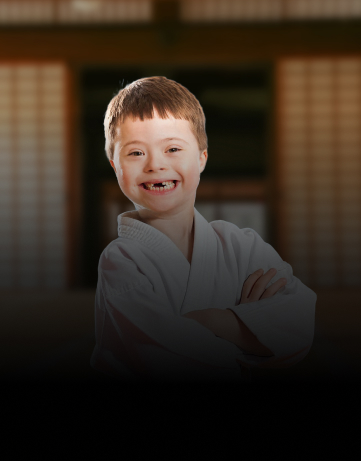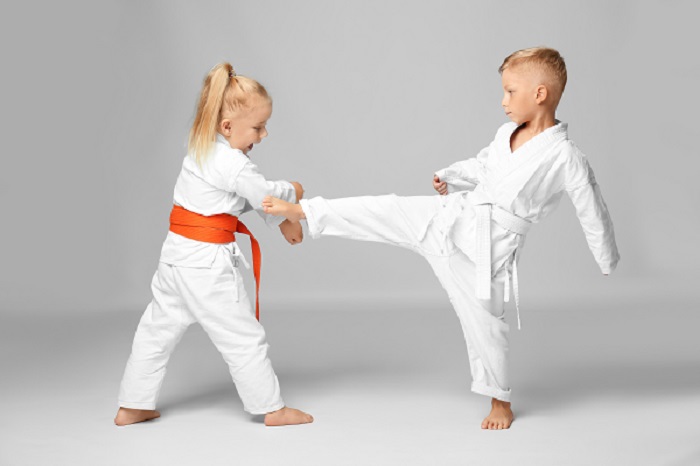Exactly How Karate for Kids Can Increase Self-confidence and Technique in Youthful Martial Artists
Karate for children provides a special chance to build self-confidence and technique in young martial artists. As they learn new methods and face difficulties, they not only acquire skills but also create a solid sense of self-worth. This structured setting motivates them to respect the journey of improvement. However just how does this training translate into their day-to-day lives? Discover the much deeper links that make karate more than simply a sporting activity.
The Significance of Self-confidence in Childhood Advancement
Confidence is a necessary building block in childhood advancement. When you nurture your youngster's self-esteem, you encourage them to encounter obstacles, take risks, and express themselves easily. Children with self-confidence are a lot more going to check out brand-new activities and social circumstances, which can bring about long lasting relationships and important experiences.Encouraging your child to get out of their comfort zone fosters resilience. They discover that failure isn't the end however instead a stepping stone to success. By commemorating their accomplishments, regardless of exactly how little, you assist them recognize their capacities and worth.In this trip, support and positive support from you play a crucial function. Whether it's via praise or simply being existing, your participation increases their confidence. As they grow, this confidence ends up being a long-lasting property, outfitting them to navigate both challenges and opportunities with a strong sense of self.
How Karate Teaches Technique and Focus
Martial arts helps you develop technique and emphasis via its structured training routine. As you practice mindfulness throughout each session, you'll find out to concentrate much better both on and off the floor covering. Plus, establishing and accomplishing goals in karate reinforces your capacity to stay dedicated and conscientious.
Structured Training Routine
While you take part in karate training, you'll rapidly find just how a structured regimen imparts technique and emphasis in young specialists. Each course adheres to a certain layout, including workouts, strategy practice, and sparring. This consistency shows you to respect the process and dedicate to renovation. As you find out types and techniques, you establish a sense of responsibility for your very own progress.The structured environment motivates you to establish goals, whether mastering a brand-new belt or developing a kata. You'll locate that remaining concentrated during drills and courses hones your focus. The discipline you grow in martial arts expands beyond the dojo, positively impacting your schoolwork and daily regimens. Each session enhances the relevance of dedication, helping you grow right into a more disciplined individual.
Mindfulness in Technique
As you exercise martial arts, you'll find that mindfulness ends up being a crucial part of your training. Each move needs your full interest, aiding you stay focused on today minute. You'll learn to tune out disturbances and focus on your breathing, activities, and objectives. This heightened understanding hones your reflexes and enhances your discipline.During sparring or kinds, you'll uncover the significance of being mentally present - Karate Salisbury MD. You'll see how this focus not just enhances your technique however likewise develops your self-confidence. By exercising mindfulness in martial arts, you grow patience and resilience, necessary attributes that expand beyond the dojo. This way, martial arts educates you to harness your mind, helping you create a disciplined strategy to difficulties both on and off the floor covering

Personal Goal Setting Techniques
Establishing objectives in martial arts isn't just regarding gaining belts; it's an effective way to grow self-control and focus. When you set details, achievable targets, you create a roadmap for your progression. As an example, rather of just aiming to boost your kicks, attempt concentrating on grasping a particular method monthly. This approach maintains you motivated and engaged.Breaking down bigger objectives into smaller sized, convenient actions helps you track your progression and celebrate tiny victories in the process. Whether it's developing your position or raising your sparring endurance, every objective reinforces your dedication. As you achieve these goals, you'll develop confidence in your abilities and develop a solid sense of self-control that expands beyond the dojo right into day-to-day life.
Building Strength Through Martial Arts
Martial arts, particularly martial arts, uses children a special chance to construct resilience in an encouraging environment. In classes, they encounter these details difficulties that push their restrictions, whether it's competing or understanding a new strategy with a partner. Each setback, like a missed out on kick or a shed match, comes to be a possibility to learn and grow.As they practice, youngsters discover to embrace discomfort and keep attempting, even when points get tough. They uncover that failing isn't completion; it becomes part of the trip. This frame of mind helps them bounce back stronger, not simply in the dojo, however in daily life.With each challenge they get rid of, your youngster constructs self-confidence in their ability to deal with barriers, fueling their resolution. Through karate, they'll recognize that resilience isn't practically physical strength; it has to do with mental grit and perseverance, equipping them to deal with whatever life tosses their way.
The Function of Regard in Martial Arts Training
Regard is a foundational principle in karate training, promoting a society of technique and camaraderie amongst pupils. her latest blog When you tip onto the dojo floor, you're not simply finding out methods; you're likewise learning to appreciate your trainers, peers, and the art itself (Karate Salisbury MD). Bowing at the beginning and end of class isn't just a formality; it represents your acknowledgment of others' efforts and dedication.As you develop common regard, you'll locate it improves your discovering experience. You'll listen extra diligently to Full Article your instructor and gain understandings from fellow pupils. This setting urges positive objection and assistance, allowing everyone to grow together.Moreover, respect grows self-discipline. Acknowledging the value of effort and humility assists you remain focused on your training. Subsequently, this respect converts into your daily life, boosting your communications and connections outside the dojo. With martial arts, you learn that respect is crucial for personal development and community building
Attaining and establishing goals Success in Martial arts

Social Abilities and Teamwork in the Dojo
While training in the dojo, youngsters naturally create important social skills and team effort capacities. As they practice along with peers, they discover to connect successfully, share area, and assistance each other. Each class presents chances for partnership, whether it's throughout partner drills or team workouts. This teamwork promotes friendships and creates a sense of belonging, making the dojo a nurturing environment.Kids also obtain useful conflict resolution abilities. When they run into challenges, such as disputes throughout sparring, they find out to navigate these situations constructively. They exercise patience and compassion, understanding that everyone has different toughness and weaknesses.Moreover, getting involved in group activities cultivates a feeling of responsibility. You'll see your kid finding out to rely upon colleagues and take duty for their duty in a group. These experiences not only improve their martial arts journey however likewise furnish them with social devices they'll lug right into other areas of life.

The Long-Term Benefits of Karate Beyond Youth
As children mature and shift into adulthood, the advantages of karate prolong much beyond the dojo. You'll locate that the technique and emphasis discovered via karate can equate right into your academic and specialist life. Establishing and attaining goals in fighting styles promotes a strong work ethic, which can press you to master any endeavor.Moreover, the self-confidence obtained from grasping methods and sparring can boost your self-worth, assisting you take on challenges head-on. This strength ends up being invaluable as you face the uncertainties of adulthood.Additionally, the social abilities established with team effort and friendship in the dojo can bring about better connections in both professional and individual balls. You'll discover to connect successfully, willpower disputes, and build an encouraging network.Ultimately, karate shapes not just skilled martial musicians, yet all-around individuals all set to tackle the globe.
Often Asked Inquiries
What Age Is Finest to Beginning Martial Arts for Children?
You can begin martial arts as early as age four or 5, yet it commonly relies on your kid's maturation and interest. Finding a course that suits their age and energy level makes a large difference.
Are There Any Kind Of Wellness Benefits From Practicing Karate?
Yes, exercising karate deals countless health advantages. You'll boost your adaptability, control, and strength while boosting cardio fitness. And also, it improves focus and psychological wellness, making it an amazing choice for overall physical and mental health.
Just How Usually Should Children Go To Martial Arts Courses?
You need to motivate your children to participate in karate classes a minimum of 2 to 3 times a week. Consistency helps them discover techniques properly and develop abilities, making their experience a lot more pleasurable and fulfilling in the future.
Can Karate Assist With Handling Stress And Anxiety in Kid?
Yes, martial arts can aid manage stress and anxiety in children. It teaches emphasis and self-control while giving a secure electrical outlet for energy. You'll notice your child growing much more calm and positive as they exercise routinely.
What Gear Is Required for Kids Starting Karate?
